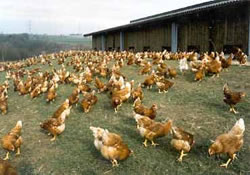
THE EU Animal By-Products Regulation bans the on-site burial of fallen stock from 30 April and the pressures on collection services will be heavily increased from that date.
Defra has been working on formulating a national scheme but it seems that they have under-estimated the size of the problem and it does not bode well that they appear to be relying on inexperienced new entrants to boost collection services.
Even with some element of initial government subsidy, ultimately it will be the users who have to pay.
The situation, and prevailing lack of confidence, has motivated many producers to review their disposal arrangements.
Low-capacity on-site incineration is regarded as best available practice by leading producers who regard investment in bio-security as crucial.
Defra successfully negotiated the exemption of animal waste incinerators from the EU Waste Incineration Directive 2000.
This however was conditional on their inclusion in the new Regulation. The interpretation of the Regulation provisions relating to incinerators is the subject of a Defra Guidance Note to be issued shortly.
We are disappointed that Defra did not give the formulation of Guidance Notes a higher priority as we first pressed Defra on this matter over a year ago.
At the time of going to press, the Guidance Notes have yet to be finalised but will incorporate provisions for the burn gases to be raised to 850°C and will lay down site hygiene requirements.
The machines will be permitted to burn SRM and ruminant carcases providing further conditions are met.
Wildemere incinerators have incorporated automatic control of the burn cycle since 1994. The new requirements represent an extension of that control to ensure 850°C temperatures are maintained in the machines.
Appropriate modifications to maintain these temperatures still mean that incineration is the cost-effective disposal option.
The legislation will also affect incinerators already in place from 30 April.
There has previously been no specific legislation covering site operating conditions but these will have to meet the new Regulation by 31 December 2004.
Defra has drafted standards to apply to these machines during the transitional period which do little more than require basic site hygiene criteria to be met.
Defra will implement a two-stage programme of inspections by the State Veterinary Service.
In the first instance sites will be checked to ensure that the transitional standards are being met and the inspectors will advise on necessary improvements to fully comply with the Regulation.
Second stage inspections will check compliance with the full Regulation. Defra says that there is no intention to charge for these inspections.
Registered existing Wildemere users will all be contacted over the next three months to advise them of any modifications that may be required to their machines.
